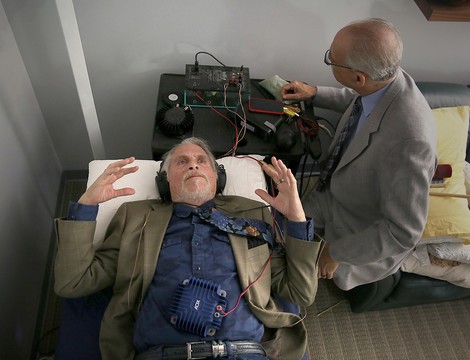Your podcast discovery platform
Curious minds select the most fascinating podcasts from around the world. Discover hand-piqd audio recommendations on your favorite topics.

piqer for: Health and Sanity Boom and bust Climate and Environment
Melissa Hutsell is an award-winning freelance journalist with a deep rooted passion for both community and international journalism. She was born and raised in Northern California, and has lived, studied, worked, and traveled in more 20 different countries. Melissa holds a Master's degree in Global Journalism from City University London, as well as degrees in Journalism and Globalization from Humboldt State University. Though she covers various topics as both a writer and editor, she specializes in business and cannabis journalism.
The New Chill Pill: Cannabis As A Gateway To Successful Sleep
2017 was a devastating year for Sonoma winemaker Hadley Larson: her mother suffered a stroke, a relative attempted suicide, and the Napa Fires forced her family from their home.
Larson suffered from a lack of sleep, suicidal thoughts, panic attacks and random outbursts of anger. When a psychiatrist recommended anti-depressants and anti-anxiety medication, she asked about cannabis instead. His response: ‘That’s where the research is heading.’
Cannabis calmed her racing thoughts, helped her get to sleep, and eased her anxiety.
She’s not alone. More Americans are ditching pharmaceutical sleep aids for botanical ones.
Scientific studies have shown Tetrahydrocannabinol (THC) to be an effective sedative. Cannabis is also shown to reduce obstructive sleep by quelling nightmares and decreasing the amount of rapid eye movement (REM) sleep.
There’s no lack of research on the topic. “Almost every clinical study that’s looked at cannabis-based medicines has shown an improvement in sleep,” said Dr. Ethan Russo, neurologist.
Russo pioneered the idea that conditions like migraines or fibromyalgia are deficiencies in the body’s ability to regulate electrochemical signaling between nerves, or the endocannabinoid system (eCS). Almost all vertebrates are known to have an eCS system.
Russo believes these cannabinoids are capable of correcting deficiencies within the human body “in much the way a key fits into a lock and opens a door”.
This isn’t taught in medical school, and doctors generally don’t know much about cannabis or the eCS system.
While cannabis has the potential to increase quality of life, it doesn’t work for everyone. At Rossmoor, a senior community in California, 94 percent of cannabis club members reported better sleep. Six percent said it was not helpful. One patient reported experiencing vertigo.
Though cannabis may not be a realistic option for all, it doesn’t mean it’s not effective, notes Russo.
